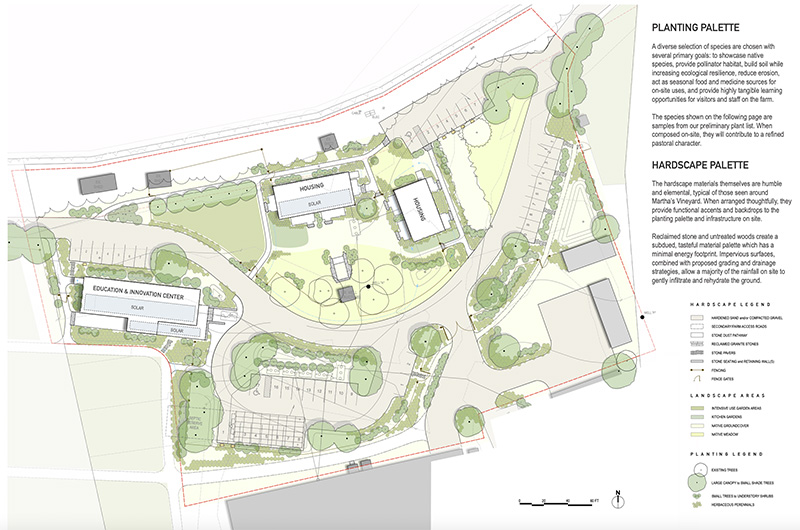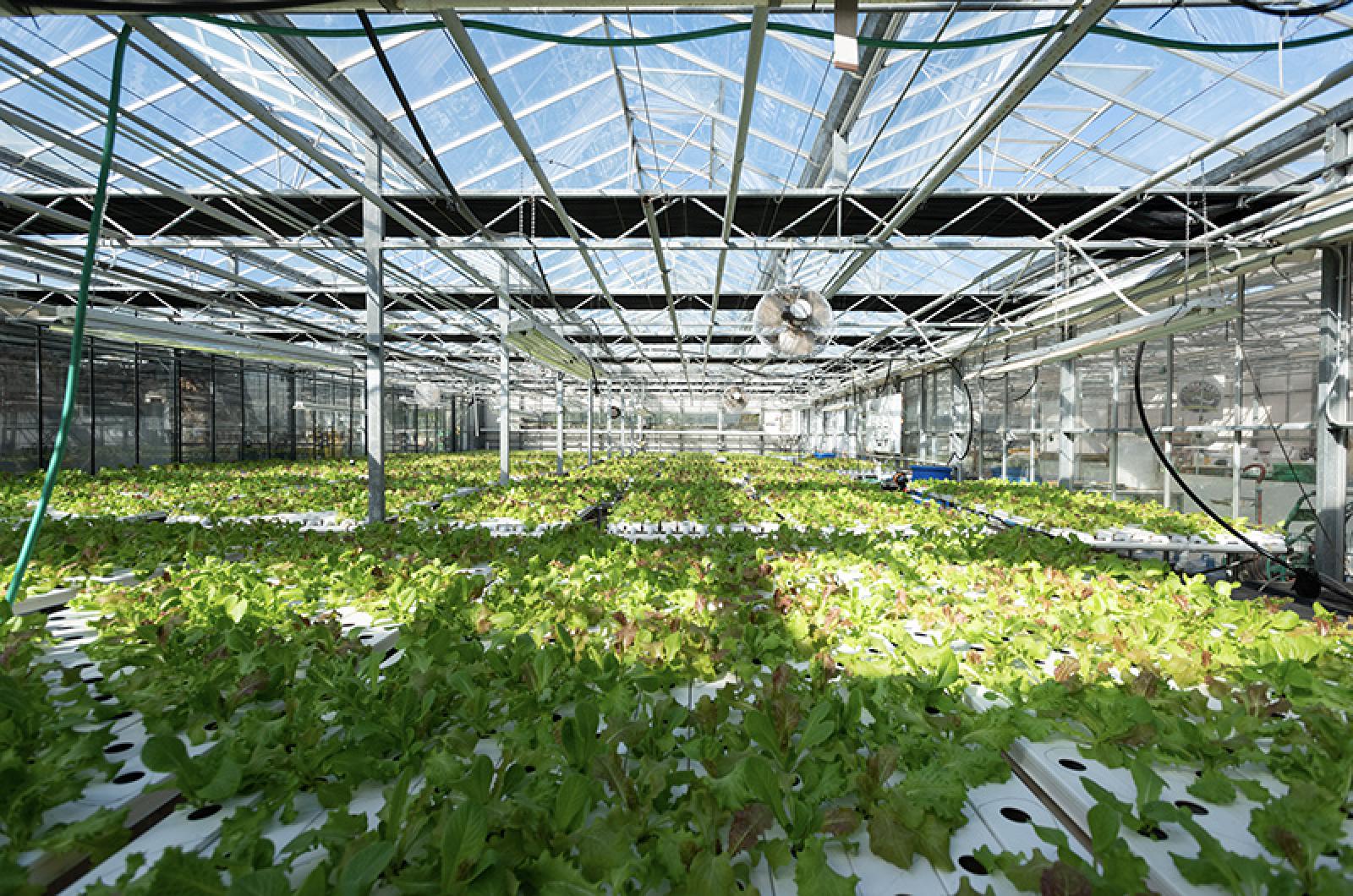A new education center, employee housing and a new vision for the future were unveiled Thursday night when the Martha’s Vineyard Commission opened a hearing on phase one of a master plan for Island Grown Initiative’s community farm hub.
Headquartered at the former Thimble Farm, IGI has expanded its nonprofit mission and reach into the Island community in recent years under the direction of executive director Rebecca Haag with an emphasis on food equity, education and innovations in agriculture.
The new master plan aims to revamp the old Thimble Farm into a more workable facility to house its programs.
“There are projects, there are projects and then there are dream projects,” said John Abrams, the founder of South Mountain Co. in West Tisbury which is designing and building the project. “This is a dream project.”
The MVC is reviewing the plan as a development of regional impact (DRI).
On Thursday South Mountain architect Angie Francis walked commissioners through the plans, which aim to consolidate operations and expand educational programming while providing housing for staff on the roughly 40-acre farm that spans Tisbury, Oak Bluffs and West Tisbury in the Iron Hill area off the Edgartown Vineyard-Haven Road.
Phase one of the plan calls for building three new structures. A 3,200-square-foot education and innovation center would house staff offices and host programming.
Administrative staff currently use office space off the farm premises.
“It’s just better facilities to make them more fun, more safe, more accessible,” Mr. Abrams said. “There’s not a great expansion of use, just a consolidation.”
Two additional structures would be built for employee housing.
“We feel that as an employer on the Island, we should be responsible, and we’ve got to be part of the solution for the housing crisis,” Ms. Haag told commissioners.
The plan calls for four units of housing for up to 10 employees with an income capped at 150 per cent of area median income. A small number of ready-made yurts are also planned to be used to house summer workers.

The all-electric new buildings will be net zero and highly energy efficient, with rooftop solar panels. Parking areas will include space for electric vehicle charging stations. Building materials will be natural and reclaimed as much as possible, Ms. Francis said. Responding to a commissioner question, she later explained the decision to use what is called the red list, a list of 22 classes of materials which contain elements known to pose risks to the environment and people.
“The easiest solution is really just to use reclaimed materials and locally sourced materials and things that are of the earth,” Ms. Francis said.
The project, which is in the Lagoon Pond watershed, will include a denitrifying septic system.
There will be no traditional formal landscaping; instead the plan calls for making the property a laboratory of sorts for native plants. The farm is actively engaged in a regenerative agriculture project.
The farm has been identified as a sensitive archaeological site, and a state study is pending for the plan.
In an overview, IGI senior program manager Noli Taylor noted that last year the farm produced 75,000 pounds of food that went to Islanders in need, through the summer lunch program for children, the mobile market in Island neighborhoods, the Island Food Pantry, senior centers and others. “We were able to do so much because of our partnerships,” Ms. Taylor said.
Commissioners peppered the applicants with questions on a variety of topics, and more than one had high praise for the plan.
“It’s really a joy to see such an innovative and thorough project,” said commissioner Ben Robinson.
“I echo the compliments . . . a well thought-out, well designed project,” said commissioner Michael Kim.
Commissioner Doug Sederholm singled out the red list as a notable innovation.
“I’m pretty confident . . . we’ve never had an applicant address that before,” he said. “I’m first learning about it as we speak.”
The hearing was continued to Feb. 3.
In other business, commissioners voted unanimously to extend to 2026 a project by the town of Oak Bluffs to restore a section of coastal bank along East Chop Drive.
The project is meant to protect against flooding and shoreline erosion brought on by storms. The MVC approved it as a DRI in 2018.
Engineer Carlos Pena said the project timetable has been pushed back as the town awaits funds from the Federal Emergency Management Agency, among other issues.
Commissioners also voted unanimously to approve the written decision for the Shearer Cottage expansion project. The project now returns to the town level, for review by the Oak Bluffs planning board and zoning board of appeals.








Comments (11)
Comments
Comment policy »